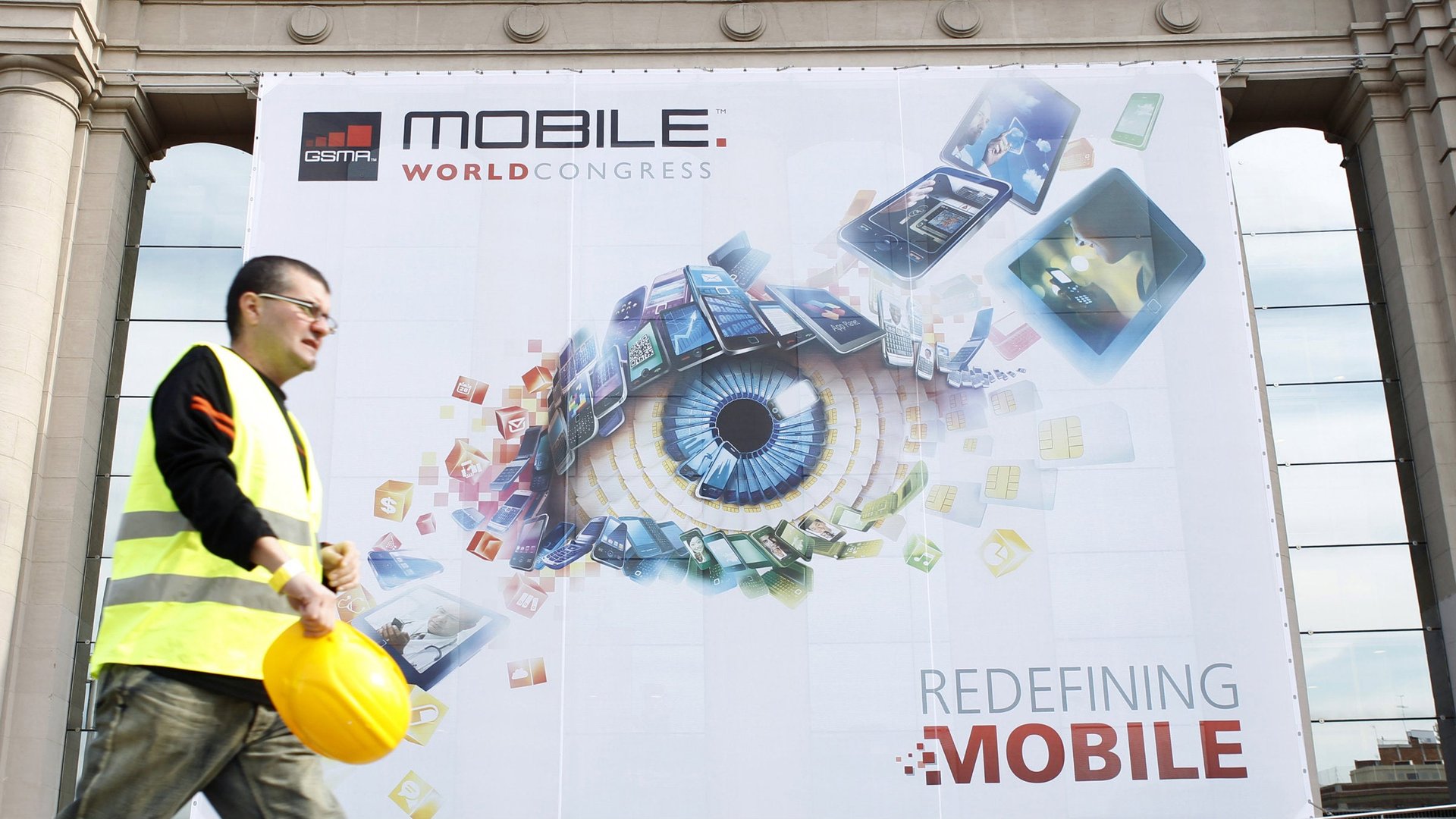Here’s the strategy the mobile industry will announce in Barcelona next week
Over the past few years, mobile operators have been reduced to dumb pipes ferrying data back and forth between customers and online behemoths such as Google and Facebook, which then reap the rewards of rich data from their users’ online activities. Now the mobile industry has had enough of standing idly by.


Over the past few years, mobile operators have been reduced to dumb pipes ferrying data back and forth between customers and online behemoths such as Google and Facebook, which then reap the rewards of rich data from their users’ online activities. Now the mobile industry has had enough of standing idly by.
According to a source with knowledge of the industry’s plans, the GSM Association (GSMA), a global trade body of mobile operators and associated companies, will announce the industry’s efforts to “become the secure guardians of consumer data,” as a presentation by a GSMA executive and seen by Quartz puts it, next week at the Mobile World Congress, an annual industry shindig in Barcelona.
The industry has been open about its desire to get into digital identities, which it calls mobile identity. GSMA’s website is littered with documents explaining its value and areas in which operators could capitalize on their customers’ data. But next week’s announcement will bring the efforts into full public view for the first time. The timing makes sense. An internal GSMA document (pdf) published by a Swedish Pirate Party MEP put 2015 as the date by which “the mobile identity programme will have positioned mobile at the heart of identity management, having initiated and supported multiple implementations globally.”
GSMA told Quartz it has yet to decide on what it will say at the event; its website however is clear that ”Digital and mobile identity will be a focus topic at Mobile World Congress 2014.”
Mobile’s road ahead
The presentation seen by Quartz is the result of an eight-month consultation with the industry, including most of the world’s biggest mobile operators, tech companies including Google and Facebook, and a handful of third parties such as non-profits, research firms and investors. The result is a strategy that runs to the end of the decade, laying out four areas of focus that the industry sees as its salvation. Chief among them is digital identity, which will help “consumers gain control of their personal data through a digital identity that enables seamless access to digital services while respecting privacy.” Of course, as time passes, operators will also use the data to “develop consumer insights” and “deliver personalized services,” much as web giants do.
(The other pillars include connecting the digital and physical worlds by making networks ready for the internet of things; building “intelligent networks”; and entering e-commerce through operator billing and mobile wallets, thus becoming “trusted mediators.”)
The value of your identity
Digital identity is another way to talk about collecting consumer data, a valuable resource that one high-ranking EU official calls “the currency of the digital age.” Like most currencies, the more you control, the greater your ability to profit from it. Though it is easy to see online identities only as log-in and password credentials, they in fact provide troves of personal information to providers of the identity. Google, for example, uses its social network Google+ not as a service to allow users to communicate but as a way to track users’ behaviour and movements across all of its services. Facebook does the same through its login service which allows any web or app publisher to let people access their services with Facebook credentials.
Mobile’s interest in gaining access to similar data is a natural result of its losses elsewhere. Mobile operators are finding their core functions—calls and texts—becoming less relevant and thus less profitable as online communication takes off. Already messaging on “over the top” text services such as WhatsApp and WeChat far exceeds SMS, with 10.3 trillion such messages sent in 2013 compared to 6.5 trillion via SMS, according to a recent study from Analysys Mason, a research consultancy. The firm expects nine OTT messages to be sent for every text by 2018. GSMA itself expects data consumption to rise by an order or magnitude by 2020. Instead of fighting what is obviously the future of communication, it has decided to join in.
How exactly mobile operators will insert themselves between customers and the web is unclear, but the amount of data they have to play with is not: As GSMA’s website explains, “With their differentiated assets such as the SIM card, and strong registration, authentication, and fraud detection and mitigation processes, mobile operators have the ability to provide sufficient authentication to enable consumers, businesses and governments to interact in a private, trusted and secure environment and enable access to services.”
It does, however, warn that “mobile operators need to move quickly and collectively to seize the current opportunity.” Next week cannot come soon enough.